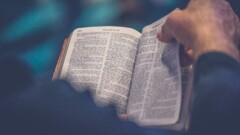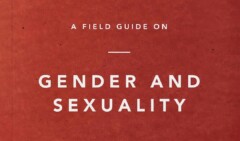As I read my way through the works of David McCullough, I have come to Brave Companions, a book that offers “Portraits in History”—brief glimpses of people and incidents that helped make America what she is today. One of the chapters deals with “The American Adventure of Louis Agassiz.” Agassiz was a French zoologist and geologist who settled in the United States in the mid nineteenth century. He began a distinguished career as a professor at Harvard. He revolutionized the way this field was taught, focusing far more on observation than rote learning. Agassiz utterly rejected Darwinism, believing to his dying day that to study nature was to study the works of God. He worked tirelessly to see a zoological museum built at Harvard and when it was finally opened in 1860, Harvard’s President declared it was appropriate that the museum stood face-to-face with the theological school, “God’s word and God’s works mutually illustrating each other.”
Here is how McCullough describes the Agassiz teaching style.
Most unorthodox of all, and crucial as time would tell, was his manner of teaching. He intended, he said, to teach students to see—to observe and compare—and he intended to put the burden of study on them. Probably he never said what he is best known for, “Study nature, not books,” or not in those exact words. But such certainly was the essence of his creed, and for his students the idea was firmly planted by what they would afterward refer to as “the incident of the fish.”
His initial interview at an end, Agassiz would ask the student when he would like to begin. If the answer was now, the student was immediately presented with a dead fish—usually a very long dead, pickled, evil-smelling specimen—personally selected by “the master” from one of the wide-mouthed jars that lined his shelves. The fish was placed before the student in a tin pan. He was to look at the fish, the student was told, whereupon Agassiz would leave, not to return until later in the day, if at all.
Samuel Scudder, one of the many from the school who would go on to do important work of their own (his in entomology), described the experience as one of life’s turning points.
In ten minutes I had seen all that could be seen in that fish. … Half an hour passed—an hour—another hour; the fish began to look loathsome. I turned it over and around; looked it in the face—ghastly; from behind, beneath, above, sideways, at three-quarters view—just as ghastly. I was in despair.
I might not use a magnifying glass; instruments of all kinds were interdicted. My two hands, my two eyes, and the fish: it seemed a most limited field. I pushed my finger down its throat to feel how sharp the teeth were. I began to count the scales in the different rows, until I was convinced that that was nonsense. At last a happy thought struck me—I would draw the fish, and now with surprise I began to discover new features in the creature.
When Agassiz returned later and listened to Scudder recount what he had observed, his only comment was that the young man must look again.
I was piqued; I was mortified. Still more of that wretched fish! But now I set myself to my task with a will, and discovered one new thing after another. … The afternoon passed quickly; and when, towards its close, the professor inquired: “Do you see it yet?”
“No,” I replied, “I am certain I do not, but I see how little I saw before.”
The day following, having thought of the fish through most of the night, Scudder had a brainstorm. The fish, he announced to Agassiz, had symmetrical sides with paired organs.
“Of course, of course!” Agassiz said, obviously pleased. Scudder asked what he might do next, and Agassiz replied, “Oh, look at your fish!”
In Scudder’s case the lesson lasted a full three days. “Look, look, look” was the repeated injunction and the best lesson he ever had, Scudder recalled, “a legacy the professor has left to me, as he has left it to many others, of inestimable value, which we could not buy, with which we cannot part.”
The incident of the fish marked the end of the student’s novitiate. At once Agassiz became more communicative, his manner that of a friend or colleague, now that the real work could begin.
The way to all learning, “the backbone of education,” was to know something well. “A smattering of everything is worth little,” he would insist in the heavy French accent that he was never to lose. “Facts are stupid things, until brought into conjunction with some general law.” It was a great and common fallacy to suppose that an encyclopedic mind is desirable. The mind was made strong not through much learning but by “the thorough possession of something.” In other words, “Look at your fish.”
There were so many lessons I drew from this as I thought of my own attempts to understand God through His Word. The parallels are uncanny (but for the injunction to “study nature, not books.”) The primary lesson for me is this: like Scudder I tend to consider myself ready to move on too quickly. I move quickly from the Bible to resources that help explain them to me. I skim the Bible and then turn to commentaries and sermons to do the hard work for me. But how much better would I be if I would just heed Agassiz and “look at your fish.”










